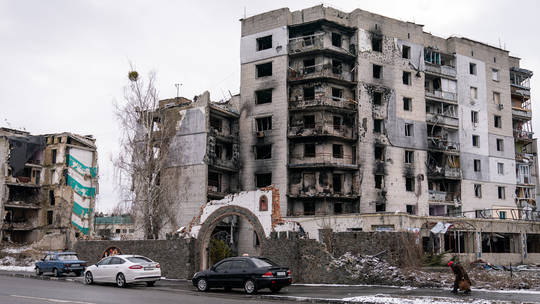Could Georgia become the new Ukraine because it is caught between the West and Russia?
March 8, 2023Tweet
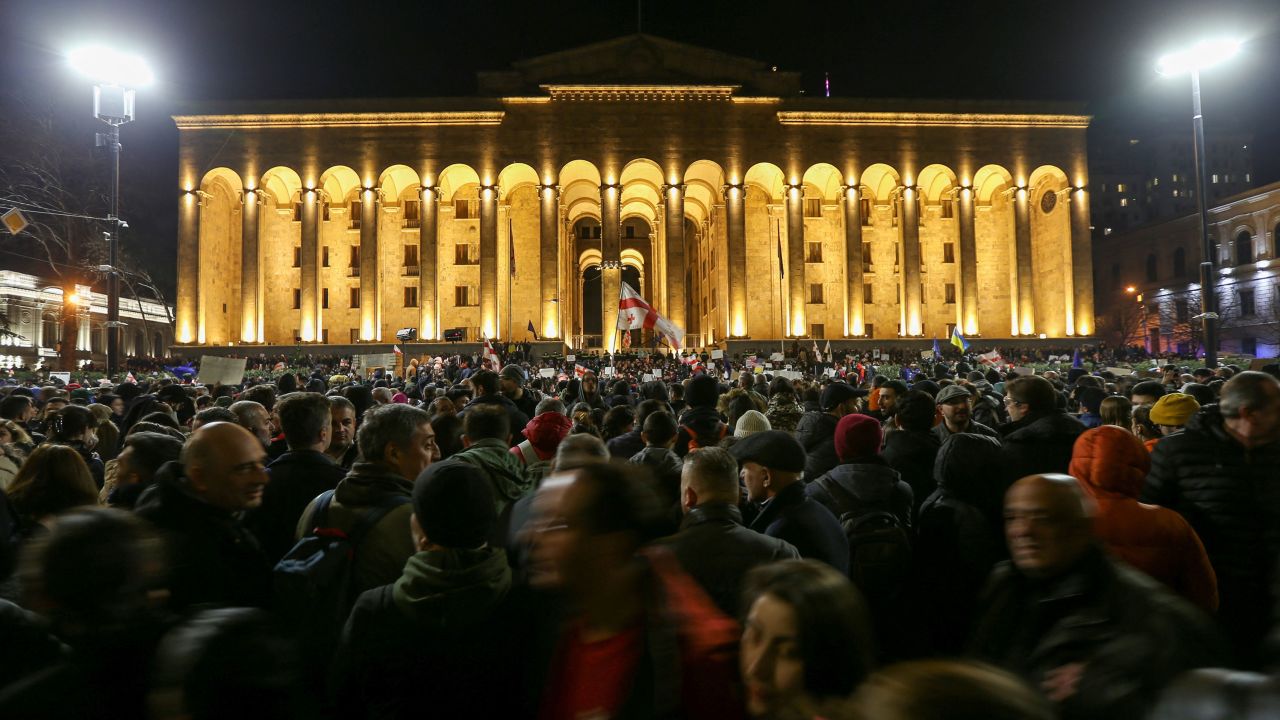
(cnn) ⸻ Protests have erupted in Georgia this week after the country's parliament passed the first reading of a draft law that would require some organizations receiving foreign funding to register as "foreign agents". The legislation has been compared to a draconian set of laws adopted in Russia and condemned by rights groups as a bid to curtail basic freedoms and crack down on dissent. The bill must pass further readings to become law, and the President of Georgia, Salome Zourabichvili, has pledged to veto it. The country, which won its independence from the Soviet Union in 1991, has long been playing a balancing act between its citizens' pro-European sentiment and the geopolitical aims of its powerful neighbor, Russia. Giorgi Gogia, associate director of the Europe and Central Asia Division at Human Rights Watch, said the bills represent a clear threat to human rights in Georgia.
Georgia's bill follows the model of a controversial law in neighboring Russia that has already imposed draconian restrictions and requirements on organizations and individuals with foreign ties. The law was initially passed in 2012 amid a wave of public protests over allegations of election-rigging and Vladimir Putin's intentions to return to the Russian presidency. Russia's law on Foreign Agents has been gradually updated since then, forming the backbone of an even tighter stranglehold on civil society in Russia over the past decade. In December 2022, the Belarusian parliament passed amendments to the law which would enable the government to target members of the political opposition, activists and other critics in exile, according to Human Rights Watch. The draft law would allow the president to strip Belarusians abroad of their citizenship, even if they have no other.
The driving force behind the legislation was nominally proposed by a faction in the parliament formed by members who left the ruling Georgian Dream party, but the ruling party fully and publicly supported the bills and campaigned for their adoption, and almost unanimously voted for it in the first reading yesterday. The European Council on Foreign Relations (ECFR) believes the Georgian Dream Party is leading Georgia towards Russia's sphere of influence. The report pointed to Bidzina Ivanishvili, a former prime minister and billionaire, as a driving force behind this pivot towards Moscow. Analysts have noted similarities between the situation in Georgia and Ukraine, both former Soviet republics which have found themselves caught between the East and the West. Former Russian President Dmitry Medvedev said in 2011 that had Russia not invaded Georgia in 2008, NATO would have expanded into Georgia.
The Georgia bill has been widely criticized as posing a potentially chilling effect for civil society, particularly NGOs and news organizations with links to Europe. An EU statement warned that the law would be "incompatible with EU values and standards" and could have "serious repercussions on our relations." US State Department spokesperson Ned Price also said that "anyone voting for this draft legislation" could also imperil Georgia's relationship with Europe and the West. Georgia's international and bilateral partners have been clear that adopting a 'foreign agent' bill would be inconsistent with Georgia's stated commitments to human rights and its Euro-Atlantic aspirations. Gogia hopes the Georgian authorities would heed to the warning and instead of passing the bills that would clearly impede the work of independent groups and media, they should ensure safe and enabling environment for civil society in the country.
Georgia Russia Salome-zourabichvili -europe Ukraine
Comments
Related news

Following Taiwan and Malaysian recalls, Indomie maker claims that its well-known instant noodles are safe for consumption.
Read more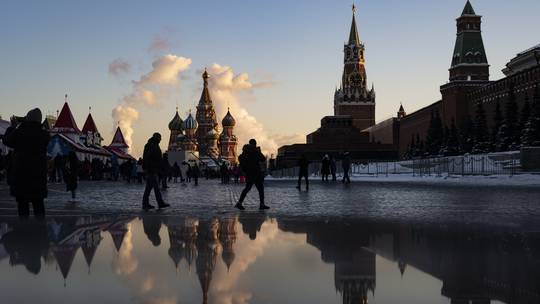
New US anti-Russia sanctions
Read more
Zelensky calls the conflict in Ukraine's Donbas "sad and challenging."
Read more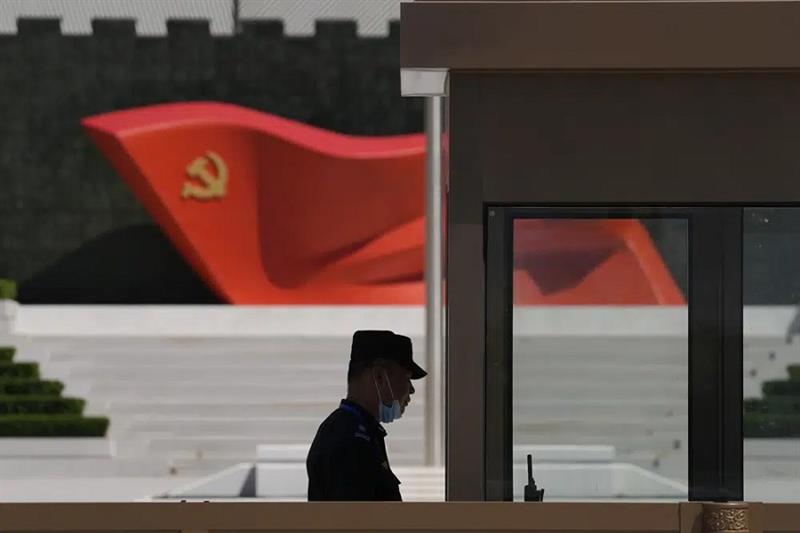
China has six navy warships and 38 aeroplanes in the area near Taiwan.
Read more
As prospects of survival decrease, some rescue missions in Syria and Turkey are suspended.
Read more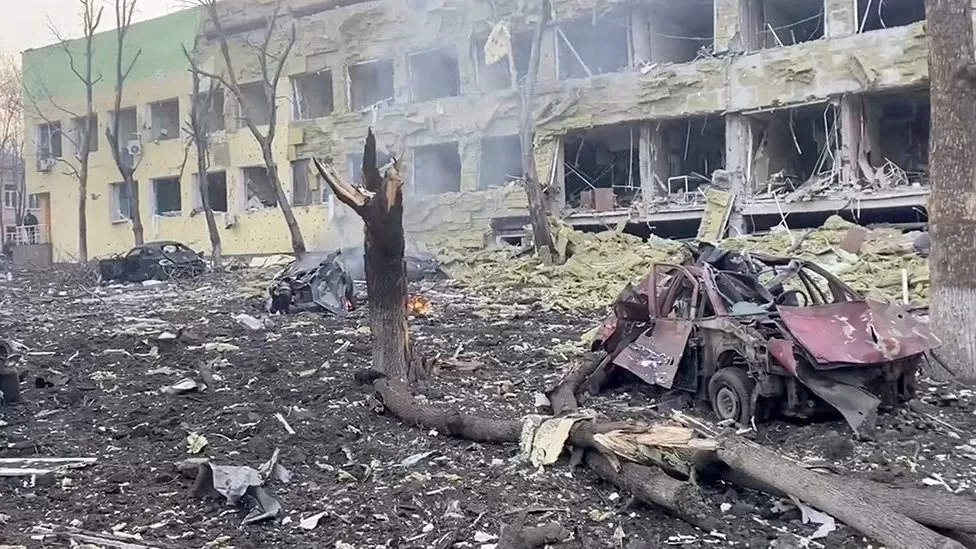
Bakhmut: Street fighting but Russia not in control—deputy mayor
Read more
Californians are thrilled and frightened by the "strongest blizzard in years."
Read more
US has to cease 'encouraging violence' in Ukraine, says Lula
Read more
Ukraine's Nord Stream sabotage claims "hypothetical" — Germany
Read more